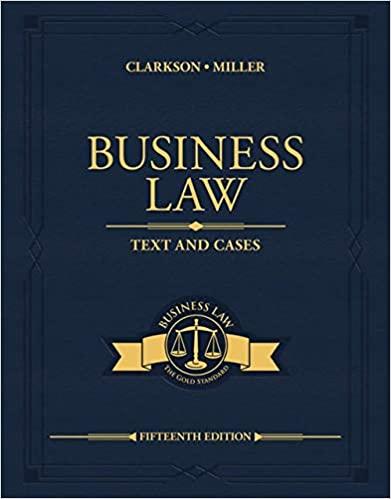Carlos Pardo signed a note to obtain $627,500 to buy a house in Stamford, Connecticut. The note
Question:
Carlos Pardo signed a note to obtain $627,500 to buy a house in Stamford, Connecticut. The note was secured by a mortgage. Later, Pardo signed a loan modification agreement that increased the balance due. The modification was not referenced in the note. Deutsche Bank National Trust Company came to possess the note. When Pardo defaulted on the payments, Deutsche Bank filed a suit in a Connecticut state court against him to recover the unpaid balance. Pardo maintained that the bank could not enforce the note. He argued that the bank was not a holder because the note was not a negotiable instrument—the loan modification agreement rendered it conditional. [ Deutsche Bank National Trust Co. v. Pardo, 170 Conn.App. 642, 155 A.3d 764 (2017)] (See Requirements for Negotiability.)
(a) Was it ethical of Deutsche Bank to sue to recover the unpaid balance on Pardo’s note? Explain, using the steps of the IDDR approach.
(b) Is Pardo correct about the status of the note? Was it ethical to make this argument? Discuss.
Step by Step Answer:

Business Law Text And Cases
ISBN: 9780357129630
15th Edition
Authors: Kenneth W. Clarkson, Roger LeRoy Miller





